Top 5 Best Antifreezes to Keep Your Car's Temperature at Acceptable Levels
Antifreeze plays a vital role in keeping your car’s engine in optimal condition by protecting it from heating up, freezing, or corroding. The liquid is passed through the engine bay, where it is circulated via a hose, drawing in the heat wherever it goes. Once the antifreeze has absorbed all the heat it can, it is directed outwards through a separate hose into a radiator. Coolants contain antifreeze to ensure that the liquid doesn’t freeze when the car is in below-freezing conditions. Typically, antifreeze liquids are made from a combination of water and glycol chemicals that are also known to be corrosion resistant and act as lubricants.
No matter what product you pick, the end-goal is to keep the car as cool as possible. However, not all types of antifreeze are made equal—some do a way better job than others. So we urge you to choose the right product for your car, to ensure that the thermostat never lands in the danger zone. To learn more about the best antifreezes, refer to our table of contents.
Table of contents
- 1. Editor's Pick: Zerex G05 Antifreeze/Coolant
- 2. Best Waterless Solution: Evans Waterless Engine Coolant
- 3. Best for Extreme Weather: Engine Ice High-Performance Coolant
- 4. Best for Audi and Volkswagen: Audi Coolant/Antifreeze
- 5. Best for Mileage: Mopar Coolant
- Things to Consider When Buying Antifreeze
- Recommended Steps for Efficient Usage of Antifreeze
- Should I be Using Antifreeze for my Car, and Why?
- How do you Know When Antifreeze Should be Changed?
- Why Does Antifreeze Come in Different Colors?
1. Editor's Pick: Zerex G05 Antifreeze/Coolant
The Zerex G05 Antifreeze/Coolant features everything you need from a reliable antifreeze solution, and it's reasonably priced. It works with diesel as well as gasoline engines. The coolant is meant for lighter vehicles and bigger pickup trucks. So if you usually buy expensive OEM coolants, give this one a try. The chemical composition of the Zerex G05 includes a main base that is formulated from a Hybrid Organic Acid Technology (HOAT) coolant; it is phosphate free, has low pH levels and silicate counts.
Also, the antifreeze solution comes with a defoamer that keeps the car in top shape, protecting all hoses and plastic parts. It also contains nitrite, which is quite essential to prevent cavitation in a diesel engine's cylinder lines. Ideally, you should make a 50/50 mixture with water to use it; this helps to ensure that it won't freeze or heat up. On the other hand, a 50/70 solution is best for resisting corrosion.
Pros | pH levels are low, very little silicate, phosphate-free, corrosion-resistant even for aluminum, protects plastics, long-lasting |
Cons | Doesn't contain a bittering agent to shield pets from accidental spillages |
2. Best Waterless Solution: Evans Waterless Engine Coolant
The EVANS Waterless Engine Coolant is hands down one of the best antifreeze and coolants on the market. If you drive a diesel engine, this should be your top pick. Though it is somewhat pricier, it is also a lot more effective at keeping your vehicle safe in extreme temperatures. The coolant is meant for CNG, LP, light-duty diesel, and gasoline engines. No water is involved in its formulation, which raises its corrosion-resistant capabilities.
The chemical formula of this recommendation includes a propylene glycol base, ensuring that cavitation or electrolysis won't be an issue, thanks to its non-reactive profile. Also, it discourages engine knocks or hot spots, which makes it great for use with engines that are known to heat up. It also has a high boiling point and it stays stable in low to very low temperatures. This antifreeze can work efficiently in temperatures of up to 375-degrees Fahrenheit and doesn't freeze even at negative 40-degrees Fahrenheit. Even if the coolant gets heated beyond the recommended temperature, it will vaporize at low pressures, causing minimal stress to the car.
Pros | Corrosion-resistant, high boiling point, vaporizes at low pressures, water-free, maintains form even at -40 degrees Fahrenheit |
Cons | Pricey, but you get value for money, engine requires prepping if shifting from a water-based coolant |
3. Best for Extreme Weather: Engine Ice High-Performance Coolant
If you live in areas that are prone to extreme temperatures, this high-efficiency coolant is just what you need. This non-toxic, phosphate-free antifreeze has a more robust profile than other options on the market, and we feel that it has revolutionized the coolant industry. This coolant features a PG (propylene glycol) foundation, which isn't as toxic as ethylene glycol, and it is biodegradable as it contains no phosphate.
You can use it right of the can without any mixing, as it is sold pre-mixed with corrosion-resistant, de-ionized water. The chemical formula ensures that it doesn't leave behind scale or mineral deposits in the radiator or the rest of the system. Boilover protection is up to 256-degrees Fahrenheit while freeze protection is for up to negative 26-degrees Fahrenheit. This configuration makes the Engine Ice TYDS008-03 perfect for ATVs, motorbikes, snow machines, and desert vehicles, etc.
Furthermore, it has ASRA and CCS permissions for letting engines perform at their full potential, making it an ideal choice for vehicles on race tracks. Remember to flush the engine if you are shifting from another coolant or antifreeze solution to the Engine Ice High-Performance Coolant for the very first time.
Pros | No need to add extra water, little to no corrosion risk, Biodegradable, reasonable boilover limit, non-toxic, phosphate-free |
Cons | Requires engine flush, pricey |
4. Best for Audi and Volkswagen: Audi Coolant/Antifreeze
If you are a proud Audi or Volkswagen owner, make sure you opt for nothing but the best when it comes to coolants for your luxurious vehicle. This recommendation ranks among the top OEM formulas, and it's built especially for your car. This is a fantastic pick for cars with G11, G12, G12+, and modern G13 engines. But this coolant also pairs well with new vehicles that run lilac or pink-colored coolants.
This Audi Antigel Refrigerant has an ethylene glycol base that causes no harm to alloy-based cooling systems as it is compatible with aluminum, corrosion-resistant, and prevents calcium deposits. No matter how hot or cold it gets outside, the coolant can keep the engine in top shape across the year for a significant amount of time. To get the most of it, mix it half and half with distilled water. This combination will leave you beyond impressed with how well it works with diesel, propane, and gasoline engines on passenger cars as well as smaller trucks.
The boilover point is 277-degrees Fahrenheit, and it remains efficient even at temperatures as low as negative 35-degrees Fahrenheit, which should be quite adequate. If your vehicle has a G12 engine, you won't even need to flush it to start using this antifreeze. However, you will need to deep clean and prep a G13 to make it compatible.
Pros | Compatible with aluminum, prevents calcium deposits, cost-effective, OEM recommended, corrosion-resistant |
Cons | Not phosphate-free, doesn't come pre-mixed |
5. Best for Mileage: Mopar Coolant
The Mopar 10 Year/150,000 Mile Coolant is best suited for cars that require OAT MS12106 antifreeze. These vehicles include models from Alfa Romeo, Fiat, Jeep, Chrysler, Ram, Dodge, to name a few. It is reasonably priced and comes in a one-gallon capacity, which lasts for a long while. Boilover point for this antifreeze liquid is 265-degrees Fahrenheit, and it won't freeze at temperatures as low as negative 34-degrees Fahrenheit.
Its chemical makeup is free of silicates and phosphates, monoethylene glycol is the chief ingredient in its makeup and it is manufactured using OAT AKA Organic Acid Technology. The inclusion of several corrosion inhibitors makes this coolant perfect for new-age vehicles and also enhances its shelf life. Also, this coolant comes pre-mixed, so there is no need to add water—use it as is without worrying about accidentally adding hard water to your coolant system.
Even though the coolant is known for its longevity, you'll still want to flush it out every 150,000 miles or after five years for optimal performance. Otherwise, its corrosion-resistant capabilities may be compromised.
Pros | Cost-effective, OEM recommended, corrosion-resistant, good shelf life, good for modern engines |
Cons | Not meant for older cars unless allowed for by the manufacturer, engine may require flushing before using |
Things to Consider When Buying Antifreeze
Photo credit: Ensuper / Shutterstock.com
Ideally, you should refer to the owner's manual of your vehicle, or check with the dealership or the automaker on what type of antifreeze is meant for your car and the environment you drive in.
However, here are a few factors to consider:
- Engine type—diesel or petrol.
- Type of Antifreeze—if your car is manufactured between the 1920s and 1990s, buy Inorganic Acid Technology (IAT) antifreeze. If you own a Toyota, Honda, GM, or any other new models equipped with an aluminum radiator, go with Organic Acid Technology (OAT) antifreeze. If your car is an Asian or European make, Hybrid Organic Acid Technology (HOAT) Antifreeze is what you should need.
- Ethylene Glycol or Propylene Glycol Based Antifreeze—based on what your car requires.
- Preparation—does it come diluted, or do you have to mix it with distilled water?
- Temperatures—if temperatures go below 34-degrees Fahrenheit, it would be best to buy a 70/40 or 60/40 solution or mix it accordingly. If temperatures remain high, go for a 50/50 solution.
Recommended Steps for Efficient Usage of Antifreeze
Follow these steps to purchase the right antifreeze coolant and use it towards its full potential:
- Check out manufacturer guidelines to see the correct mixing ratio for your purchase. Some coolants come pre-mixed, whereas others have to be diluted. Make sure you are not mixing past the prescribed ratio, or you may have an ineffective solution at your hands.
- Don't mix coolants unless allowed by your car's manufacturer, because different coolants are purposed for different engine types; they don't pair well with other antifreeze agents. So, when introducing a new coolant to your car, flush away all that is left behind by the previous solution.
- Keep antifreeze away from children. This is because the majority of antifreeze coolants contain ethylene glycol, a substance known to be highly toxic. If ingested, it can be poisonous to children.
Should I be Using Antifreeze for my Car, and Why?
Yes, everyone should use an antifreeze liquid to keep the car's engine at an acceptable temperature, because the environmental conditions and prolonged driving may put undue stress on your vehicle.
Here are some of the many benefits:
- It keeps water from freezing in extreme temperatures, helping the radiator do its job.
- No matter how hot the car gets, the antifreeze will disperse the heat to keep pressure from building up in radiator pipes.
- Coolants can be corrosion resistant, so all parts in the engine bay remain in perfect condition for many years.
- Some antifreeze coolants can seal leakages so that you won't need radiator repairs frequently.
- The car's water pump remains lubricated and lasts for longer.
- The overall lifespan of the engine is significantly increased if you use the right coolant for your vehicle.
How do you Know When Antifreeze Should be Changed?
Inspect the antifreeze coolant: if it feels like it's riddled with particulates and no longer feels slippery to touch, it probably has lost its corrosion-resistant capabilities. It may end up damaging your engine if you fail to replace it immediately.
Also, refer to the coolant manufacturer's recommendations on its shelf life to know when you should change it.
Why Does Antifreeze Come in Different Colors?
Manufacturers use a color-coding mechanism to distinguish between different coolant types and what they are purposed for. For instance, nonorganic coolants are yellow or green, organic variants are dark green, red, or blue, and HOAT comes in yellow, blue, or orange.
We are committed to finding, researching, and recommending the best products. We earn commissions from purchases you make using the retail links in our product reviews. Learn more about how this works.
Photo credit: Joyce Godsey / Shutterstock.com
More by Ian Haynes



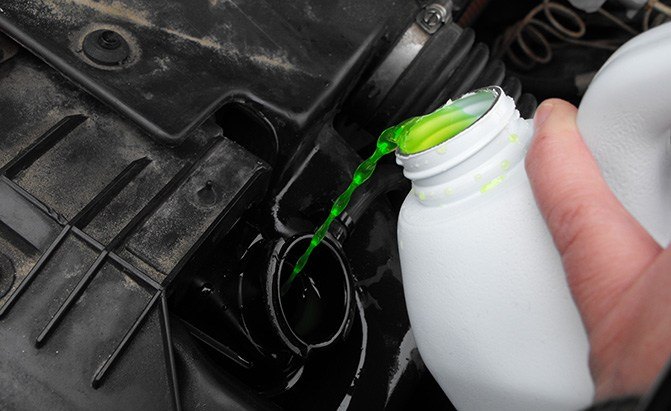
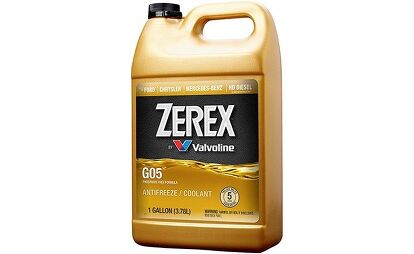















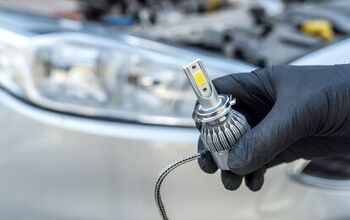

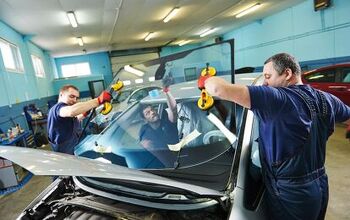
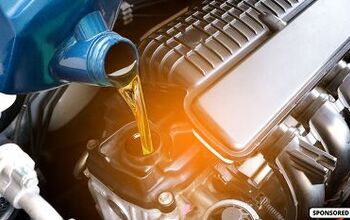


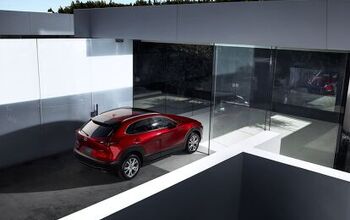



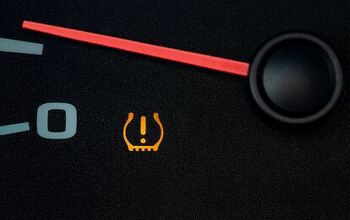

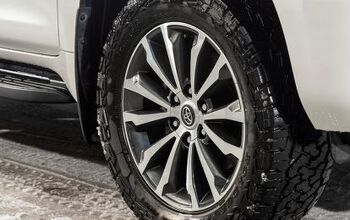
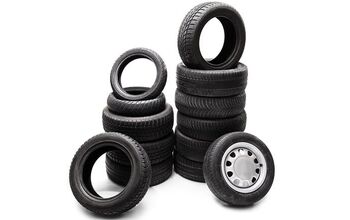




Comments
Join the conversation